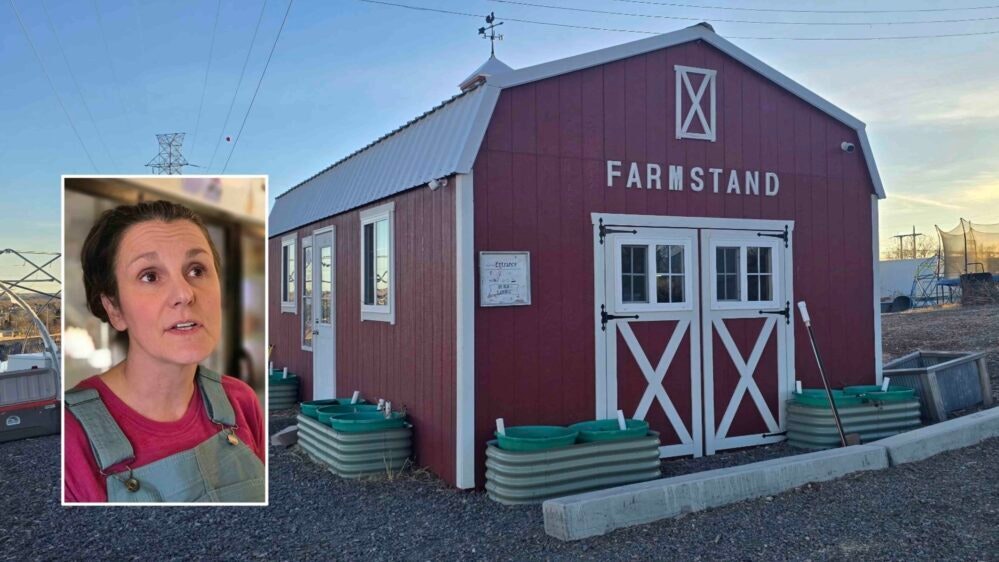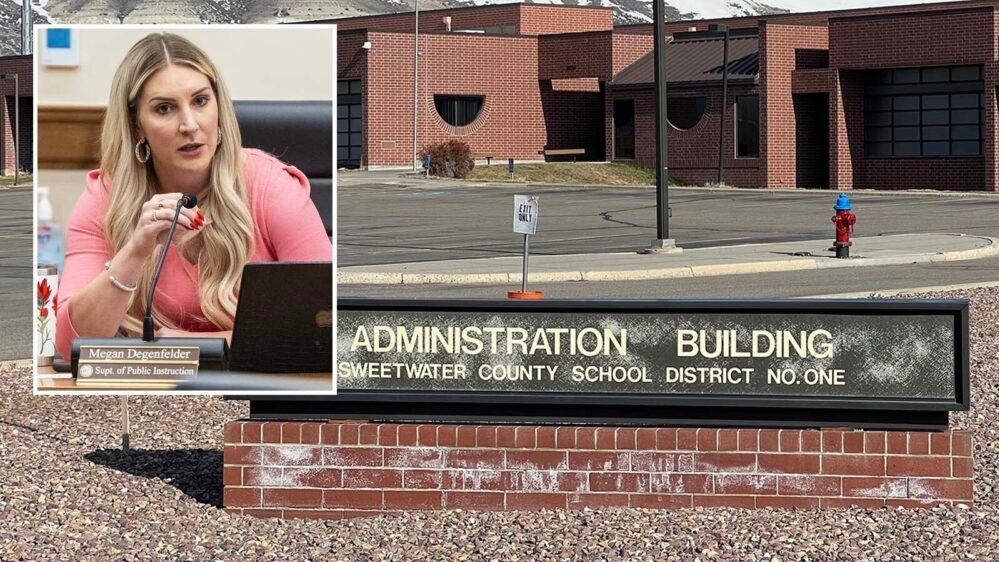Senate President Ogden Driskill, R-Devils Tower, said he was proven right Tuesday night.
That’s when the Joint Conference Committee (JCC) of the Wyoming Senate and House unanimously approved a biennial budget report that he estimates came in about halfway between the $1.1 billion difference separating the $11.1 billion House and $9.9 billion Senate original budgets.
“You got somebody that actually knows how to negotiate a budget — it’s our goal,” Driskill said. “This has been the process that’s gone on around here.”
It only took one day of work for the newest JCC to strike a compromise on the budget.
The new committee was established Monday night after members of the first House JCC determined that a compromise could not be made between the two chambers. Members of the House had said the counter proposal made by members of the more conservative Senate JCC fell woefully short of a compromise to shore up the $1.1 billion difference between them.
Driskill said the fact that a solution was so quickly able to be met makes a bit of a statement to the Senate, and particularly the former JCC chair Sen. Dave Kinskey, R-Sheridan, who Driskill removed from his post on Monday.
“Senator Kinskey sat through multiple years of watching the budgeting get negotiated yet chose to take a completely different path,” Driskill said. “It’s been pretty discouraging, because the fact of the matter is, they’ve (House JCC) been pretty willing to sit with us.”
The first Senate JCC run by Kinskey had taken four days to deliver a response to the House’s original proposal. Members of the new JCCs worked together throughout the day Tuesday to come to their budget agreement.
“It was difficult and very fast,” said Sen. Tara Netercott, R-Cheyenne, after the budget was approved. “I appreciate your work today and all the work we’ve done. I’m proud of the work that we’ve done.”
The Highlights
There were some major, hot-button ticket items returned to the budget that the Senate had originally opposed.
The JCC fully restored funding and approval for the University of Wyoming’s Gender Studies program, but will continue the Senate’s position of prohibiting the university from funding its Diversity, Equity and Inclusion office and programming.
Sen. Cheri Steinmetz, R-Lingle, had brought the amendment to strip UW of its Gender Studies program.
“This action is a symptom of why Senate conservatives made so many amendments to the Joint Appropriations Committee budget,” Steinmetz said. “The Joint Appropriations Committee was clearly out of touch with Wyoming citizens and the will of the majority of the body as a whole. It is unfortunate that the Joint Conference Committee refused to hold the line on these important issues.”
In addition, the committee also allowed UW to continue managing its own budget and returned $50 million of the original $75 million proposed for research at the Center for Innovation for Flow Through Porous Media.
The JCC also restored $110 million in public school capital construction funding that had been removed from the budget by the Senate.
Likely to create some serious contention when the JCC’s budget report moves to the House and Senate floors is a specific devotion of $150 million to fund the demolition of a new Rock Springs High School and construction of a new one. The eligibility for this school to get construction funding was highly contested on the Senate floor during its budget process.
The Senate had removed most of the governor’s Energy Matching Funds program, but the JCC restored almost all of it aside from $50 million less than the $200 million proposed for the large project portion of the program.

Cuts Made
- One of the largest cuts made was $102 million from the state capital construction fund, including $69 million for a new state veterans home in Buffalo and $8 million for a state office building in Riverton. Still retained for Riverton is a new recreation center, an effort Sen. Tim Salazar, R-Riverton, had advocated for despite voting against many other spending measures.
- There also was $25 million removed from the Broadband Equity Access and Deployment Account, money that was instead used for demolishing the Wyoming Girl’s School Stolt Hall at a lower price than the original $37 million cost.
- A proposal authorizing the state treasurer to invest $15 million per year for a first-time homebuyer loan program was also removed, as was $8 million for grants for a Wyoming Business Council program to build housing to expand the state’s workforce.
- Money for establishing a trust fund for the state’s 988 suicide hotline call centers was reduced from $40 million to $20 million. The first Senate JCC proposed not funding any of this.
- A $31.7 million allotment to allow Wyoming state government to deal with future inflation was also retained.
- Money was also taken out for an elections education program and a stipulation preventing four of the five statewide officials from filing out-of-state lawsuits with state money.
- A total of $2 million was removed authorizing the governor to provide direct aid to Texas to help with its border security efforts.
- A cut that Driskill joked brought him “deep regret” was $75,000 to buy mammoth jackstock donkeys to place on state lands to manage the federally-run wild horse populations. “It’s actually a great idea but not well thought out,” he said.
Rep. Clark Stith, R-Rock Springs, a member of the House JCC, said he believes the budget report represents significant compromises between both chambers.
“There was some significant concessions made by the House to the Senate,” he said.
Most of the amendments were passed unanimously Tuesday with little debate or extended discussion.
Sen. Stacy Jones, R-Rock Springs, voted against the most proposals of any other committee member, but still voted to support the JCC’s budget report.
Outlook
The JCC’s budget report will be finalized over the next few days by Legislative Service Office staff and then finished by Thursday morning. The report will then be delivered to both chambers that afternoon, a presentation that’s expected to take about 4-6 hours.
Driskill has no doubt that the report will face some large pushback in his chamber.
“We aren’t voting on issues or priorities anymore, just like D.C., this is a party-line vote,” he said. “Literally, there’s people who change their votes to vote an individual party line rather than an individual voice on policy.”
At one point during Tuesday night’s meeting, Sen. Larry Hicks, R-Baggs, walked in and watched the proceedings, showing little outward enthusiasm for what was being presented. Hicks has been a major advocate for the original budget passed by the Senate.
For the Legislature to have a chance to override any vetoes Gov. Mark Gordon makes to the budget, it will have to add three days next week and deliver him the budget by midnight on Thursday. If they fail to make that deadline and still want to override, the Legislature will have to call for a special session.
“Should we go to a special session, this is 100% on the hands of that group that’s voting that way,” he said. “They know full on in that floor debate, they know full on the consequences of voting ‘no’ on the budget. Should they do it, they willingly told the people they’re willing to spend a half million dollars to go back and have another battle that’s likely to have the same outcome.”
Leo Wolfson can be reached at leo@cowboystatedaily.com.





